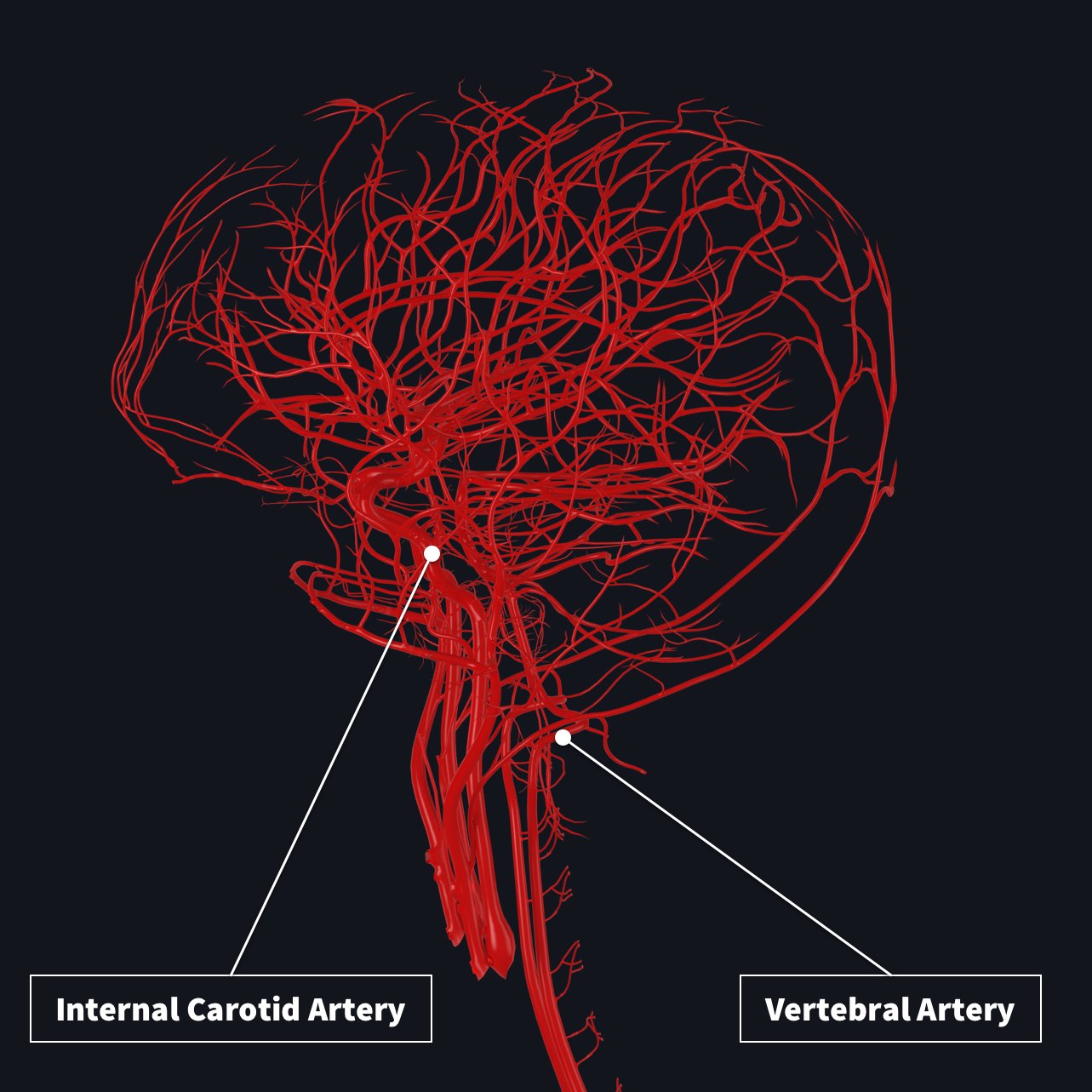Visual Anatomy Biology Diagrams The brain vasculature provides the nutrients necessary for the well functioning of the central nervous system (CNS). Anatomical and angiographic studies considerably detail the topography of the arterial architecture and the related relationships. We review the arterial blood supply to the brain. Awareness of its normal anatomy and its common variations and anomalies are critical for the The Unsung Heroes: Venous Drainage of the Brain. While arteries often steal the spotlight, the brain veins play an equally crucial role in cerebral circulation. These unsung heroes work tirelessly to remove deoxygenated blood and waste products from the brain, keeping our neural neighborhoods clean and tidy. A stroke is the result of decreased blood flow to one or more parts of the brain. The underlying pathology involves a hypoxic-ischemic injury that results in tissue death (infarction). J., & Gutierrez, J. (2015). A Functional Perspective on the Embryology and Anatomy of the Cerebral Blood Supply. Journal Of Stroke, 17(2), 144. doi: 10.5853

The blood flow in the cerebrum of humans is essential for survival. Regulation of cerebral blood flow is vital because it allows the brain to get its nutrients and oxygen even when the blood pressure in the body changes. To obtain a better understanding of the blood flow in the brain, we need a general comprehension of the blood supply and its branches as well as the physiological mechanism

Blood supply to the brain: Anatomy of cerebral arteries Biology Diagrams
Cerebral circulation anatomy. Blood supply to the brain is normally divided into anterior and posterior segments, relating to the different arteries that supply the brain. The two main pairs of arteries are the Internal carotid arteries (supply the anterior brain) and vertebral arteries (supplying the brainstem and posterior brain). The Anatomy and Physiology of Brain Blood Flow: A Guided Tour; Factors Affecting Brain Blood Flow: It's Complicated; Measuring and Monitoring Cerebral Blood Flow: Peeking Under the Hood S., Sassaroli, A., Tgavalekos, K. T., & Kornbluth, J. (2016). Cerebral blood flow and autoregulation: current measurement techniques and prospects for The cerebral circulation is complex, and if interrupted or affected, it can produce a number of clinical syndromes dependent on the area of the brain affected; these are then modified, depending on the extent of collateral blood flow present. The anatomy of the circle of Willis allows extensive protection and continued flow in the presence of a
:max_bytes(150000):strip_icc()/MiddleMeningealIllustration-f6adbace64e144d2aeb6760c4089594d.jpg)
Anatomy of the Cerebral Circulation. To begin with its simplest anatomical classificatory scheme, the cerebral circulation is composed of a supplying arterial circulation and a draining venous circulation. The contribution of the anterior circulation to total cerebral blood flow has been measured by phase-contrast magnetic resonance imaging The collateral circulation in the brain consists of vascular networks that allow for maintenance of cerebral blood flow when principal inflow conduits fail due to occlusion or constriction. The circle of Willis at the base of the brain allows for redistribution of blood flow when extracranial or large intracranial vessels are occluded [ 27 , 28
